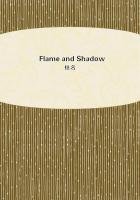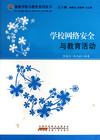When we arrived home, Dr. Leete had not yet returned, and Mrs. Leete was not visible. "Are you fond of music, Mr. West?"Edith asked.
I assured her that it was half of life, according to my notion.
"I ought to apologize for inquiring," she said. "It is not a question that we ask one another nowadays; but I have read that in your day, even among the cultured class, there were some who did not care for music.""You must remember, in excuse," I said, "that we had some rather absurd kinds of music.""Yes," she said, "I know that; I am afraid I should not have fancied it all myself. Would you like to hear some of ours now, Mr. West?""Nothing would delight me so much as to listen to you," Isaid.
"To me!" she exclaimed, laughing. "Did you think I was going to play or sing to you?""I hoped so, certainly," I replied.
Seeing that I was a little abashed, she subdued her merriment and explained. "Of course, we all sing nowadays as a matter of course in the training of the voice, and some learn to play instruments for their private amusement; but the professional music is so much grander and more perfect than any performance of ours, and so easily commanded when we wish to hear it, that we don't think of calling our singing or playing music at all. All the really fine singers and players are in the musical service, and the rest of us hold our peace for the main part.
But would you really like to hear some music?"I assured her once more that I would.
"Come, then, into the music room," she said, and I followed her into an apartment finished, without hangings, in wood, with a floor of polished wood. I was prepared for new devices in musical instruments, but I saw nothing in the room which by any stretch of imagination could be conceived as such. It was evident that my puzzled appearance was affording intense amusement to Edith.
"Please look at to-day's music," she said, handing me a card, "and tell me what you would prefer. It is now five o'clock, you will remember."The card bore the date "September 12, 2000," and contained the longest programme of music I had ever seen. It was as various as it was long, including a most extraordinary range of vocal and instrumental solos, duets, quartettes, and various orchestral combinations. I remained bewildered by the prodigious list until Edith's pink finger tip indicated a particular section of it, where several selections were bracketed, with the words "5 P.M." against them; then I observed that this prodigious programme was an all-day one, divided into twenty-four sections answering to the hours. There were but a few pieces of music in the "5 P.M." section, and I indicated an organ piece as my preference.
"I am so glad you like the organ," said she. "I think there is scarcely any music that suits my mood oftener."She made me sit down comfortably, and, crossing the room, so far as I could see, merely touched one or two screws, and at once the room was filled with the music of a grand organ anthem;filled, not flooded, for, by some means, the volume of melody had been perfectly graduated to the size of the apartment. Ilistened, scarcely breathing, to the close. Such music, so perfectly rendered, I had never expected to hear.
"Grand!" I cried, as the last great wave of sound broke and ebbed away into silence. "Bach must be at the keys of that organ; but where is the organ?""Wait a moment, please," said Edith; "I want to have you listen to this waltz before you ask any questions. I think it is perfectly charming"; and as she spoke the sound of violins filled the room with the witchery of a summer night. When this had also ceased, she said: "There is nothing in the least mysterious about the music, as you seem to imagine. It is not made by fairies or genii, but by good, honest, and exceedingly clever human hands. We have simply carried the idea of labor saving by cooperation into our musical service as into everything else.















